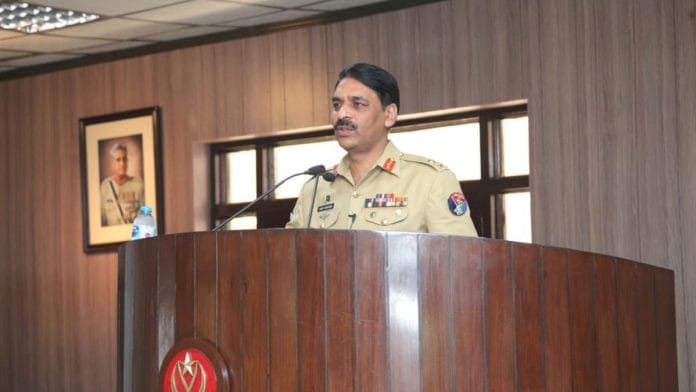New Delhi: Pakistan claims it has evidence that the Indian intelligence agency, the Research and Analysis Wing (RAW), and the Afghan intelligence wing, the National Directorate of Security (NDS), are funding human rights groups such as the Pashtun Tahafuz Movement (PTM), which are allegedly creating disturbances in the country’s Federally Administered Tribal Area (FATA).
In a press conference Monday Asif Ghafoor, the director general of the Inter-Services Public Relations (ISPR), the Pakistan Army’s media wing, blamed India and Afghanistan for the ongoing Pashtun agitation in FATA.
“Tell us how much money did you get from the NDS (Afghan intel agency) to run your campaign? How much money did RAW give you for the first sit-in in Islamabad? What revenge are you seeking from the army,” he asked in questions aimed at leaders of the agitation.
Ghafoor also claimed that the Pakistan government has already gathered “solid evidence” against some of the leaders of the movement such as Mohsin Dawar, Ali Wazir and Manzoor Pashteen, adding that legal action will be initiated against them soon and that they will be “exposed”.
Wazir and Dawar are PTM members of the National Assembly, the country’s lower house of Parliament. The Pakistan government has been planning to arrest them for quite some time now. In December last year, these leaders had sought bail fearing their arrest.
Also read: An adversary India has paid little attention to: Pakistan army’s public relations wing
PTM denies charges
Responding to Ghafoor’s statements, PTM leaders rejected his claims and said they were not getting any funding from any foreign country.
“These are baseless allegations made on us,” Wazir said in a video reply. “By doing these, they are covering up for their own faults.”
According to Indian counter-terrorism expert Ajai Sahni, Pakistan is indulging in such rhetoric as it knows it will soon be exposed for not taking adequate measures against the terrorist outfits operating from its soil.
“These are reflexive accusations. They do this when they come under pressure. If human rights issues are being raised there, then it is the job of the Pakistan government to handle it,” said Sahni, executive director at the Institute for Conflict Management.
“It only shows that the Imran Khan government is a fundamentally weak government. What will India gain by funding them? India’s concern is not them but terrorists that are based in that country.”
The Islamabad sit-in, which the DG ISPR said was carried out with the help of Indian intelligence agencies, was organised by the PTM in April 2018. The protest was also attended by Imran Khan before he became the Pakistan Prime Minister.
“It seems he is talking like a government spokesperson on various issues and not just on the Army,” said former RAW chief Vikram Sood, now an advisor to Observer Research Foundation. “Pakistan not being a normal country, the DG ISPR is giving the views of the real rulers, which is the Army.”
What is PTM?
The Pashtun Tahaffuz Movement (PTM), or Pashtun Protection Movement, has been agitating for human rights in the country. The movement, launched in 2014, is based out of the Khyber Pakhtunkhwa and Balochistan provinces of Pakistan.
Its main objective is to protect the rights of Pashtuns, the second largest ethnic group in Pakistan constituting 15.42 per cent of the population. Its agitation peaked in January 2018 when a young Pashtun from Wazirabad, Naqeebullah Mehsud, was killed in Karachi.
Also read: Year after Pashtun protests, Pakistan military is on arrest spree as civilians fight back






